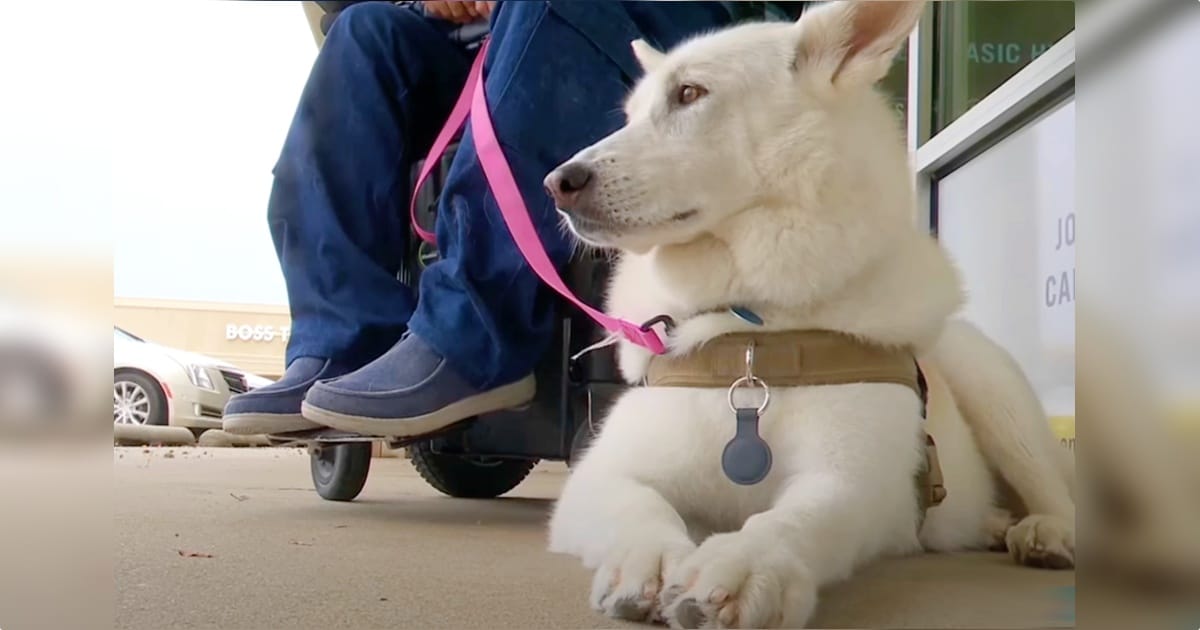Service dogs are an invaluable support system for individuals facing disabilities or health challenges, including military veterans. Yet, despite their importance, there are still misconceptions about the rights of service animals and their handlers. This became painfully clear recently when a Vietnam veteran faced discrimination at a local bar because of his service dog. David Skaggs, a Vietnam War veteran from Wagoner County, Oklahoma, relies on his service dog, Sandy, a German shepherd trained by 4 Paws 4 Patriots.

Sandy is more than just a companion—she’s a certified service animal, always by Skaggs’ side, offering him the support he needs. Under the Americans with Disabilities Act (ADA), Sandy has the legal right to accompany Skaggs into establishments. However, that right was dismissed when the two tried to enter a bar last week.
Skaggs had planned to meet friends at the bar, but upon arrival, a waitress stopped him, refusing to allow Sandy inside. Skaggs explained that his service dog was permitted by law, but the staff didn’t back down. Instead, they called over a manager or bouncer, who attempted to intimidate him into leaving. Skaggs stood firm, asserting his rights and pointing out that the ADA does not require service dogs to carry identification.

“They wanted credentials, but real service dogs don’t need ID,” Skaggs explained to 2 News Oklahoma. “The way he was talking down to me—I don’t take kindly to that. It’s hard to intimidate a combat veteran.” Despite his efforts, the bar maintained its stance, forcing Skaggs to leave. Frustrated and disheartened, he turned to social media to share his story and raise awareness about the legal rights of disabled individuals with service animals.
According to the ADA, businesses can only ask two questions regarding service animals: whether the dog is required due to a disability and what task the dog has been trained to perform. Documentation, demonstrations, or inquiries about a person’s disability are strictly prohibited.
Sandy, who received training at a minimum-security prison in McAlester, is a highly disciplined service dog who has never left Skaggs’ side. “She’s by my side constantly,” he said.

Unfortunately, Skaggs’ experience highlights a broader issue: disabled individuals frequently face discrimination and skepticism about their service animals. For veterans like Skaggs, such incidents are not only frustrating but deeply disrespectful. Some people have even been accused of faking their disability by uncooperative employees or business owners.
We hope Skaggs and Sandy receive the justice they deserve and that this story serves as a reminder to businesses about their obligations under federal law.

